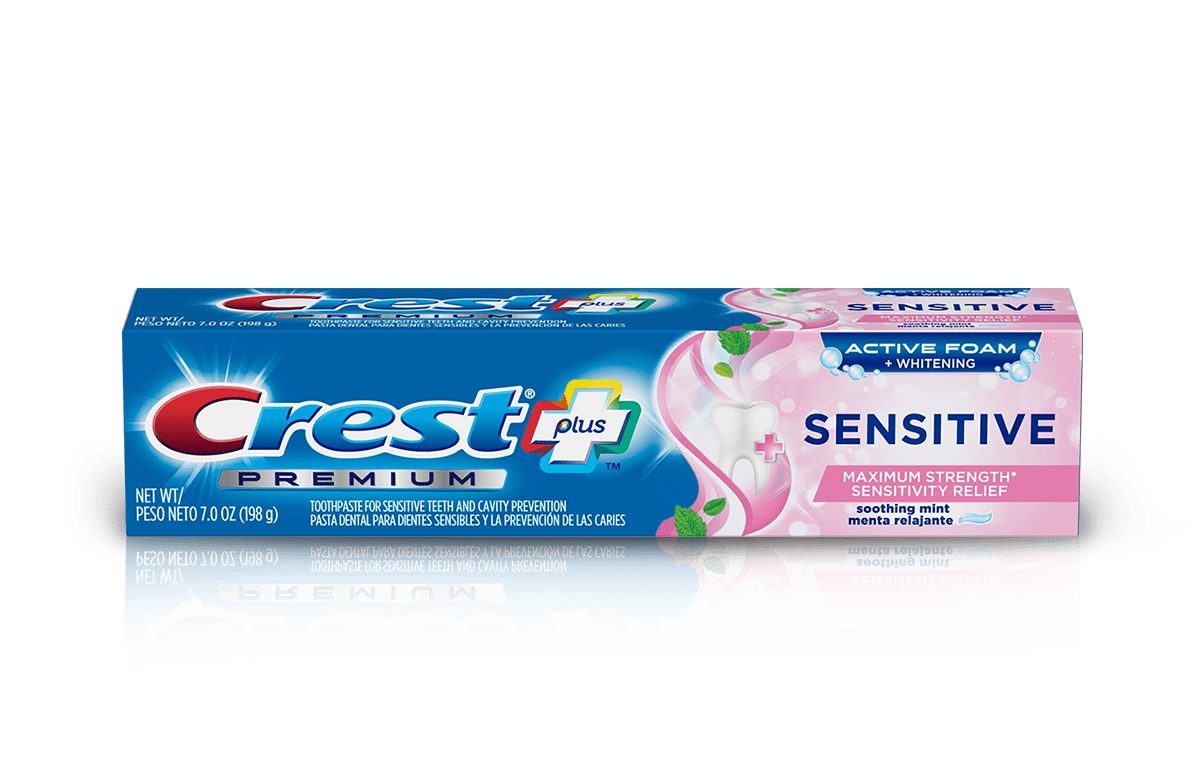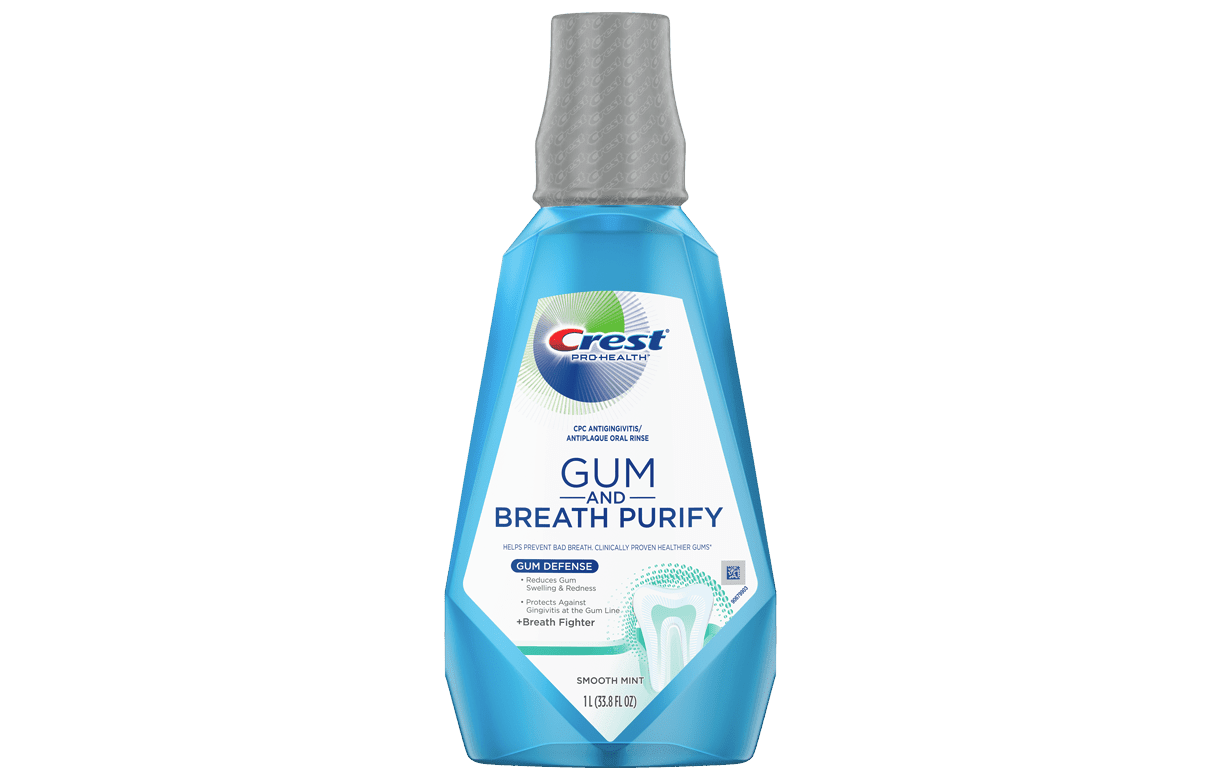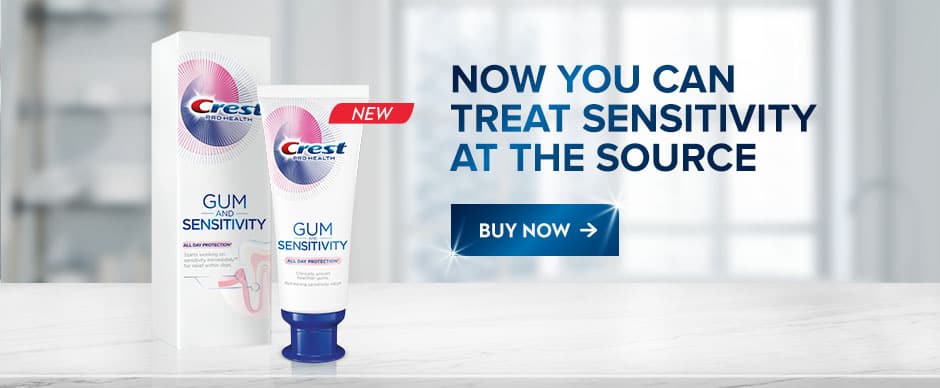TEETH-SENSITIVITY
Teeth Sensitive to Hot Food and Beverages
 Why Are My Teeth Sensitive to Heat?
Home Remedies for Teeth Sensitivity to Heat
Why Are My Teeth Sensitive to Heat?
Home Remedies for Teeth Sensitivity to Heat
Why Are My Teeth Sensitive to Heat?
Do you have a tooth sensitive to hot foods and beverages? There are numerous potential causes of tooth sensitivity to heat. But if you suffer from heat sensitive teeth, consider these less obvious possible causes of both cold- and heat-sensitive teeth:
- Dental Procedures: If you have recently undergone a dental procedure or a whitening treatment, you may find you have at least one tooth sensitive to hot and cold foods and beverages. This discomfort may wane after a few days following your procedure. Try using Crest Gum and Sensitivity Gentle Whitening Toothpaste to help alleviate some of the sensitivity pain while maintaining your newly brightened smile. If after a week you still find you have a tooth sensitive to hot or cold temperatures, you may want to consult your dental professional for advice.
- Acids from Everyday Food and Drinks: Heat-sensitive teeth can occur if the teeth are exposed to acidic food or drinks that can cause irreversible enamel loss. Look for oral care products formulated to protect against teeth sensitivity such as Crest Gum and Sensitivity.
- Dental Conditions: Those with teeth sensitive to hot and cold often have gum disease, receding gums, excessive tooth grinding, and plaque build-up or tooth decay. In fact, 80% of sensitivity starts at the gum line.
Heat-sensitive and cold-sensitive teeth are not uncommon in American adults, according to a survey conducted by the American Dental Association, Crest, and Oral-B. In this survey, 22 percent of 1000 respondents reported heat-sensitive teeth or cold-sensitive teeth when exposed to hot or cold food or drinks.
Home Remedies for Teeth Sensitivity to Heat
It’s a common problem—you take a sip of coffee or a bite of ice cream and feel a sudden surge of pain shooting through your mouth. If you have teeth sensitive to hot and cold, you don’t have to adjust your eating habits, you just need to determine the cause for sensitivity and start protecting your teeth. While many people choose to avoid certain foods or beverages to treat the pain, there are better ways to treat sensitivity that don’t require you to avoid your favorite hot and cold foods.
While there are many potential causes for this sensitivity, treatment options are fairly consistent, with the most effective targeting the issue right at the source—your gum line. Here are some suggested treatments to help prevent the pain you feel when eating or drinking hot or cold foods and beverages:
- Brush Gently: Use a toothbrush that has soft bristles and don’t brush too vigorously, as this is a leading cause of tooth sensitivity. Switching to an electric toothbrush with a specialized brush head such as Oral-B Sensitive Gum Care can help you care for your sensitive teeth and gums.
- Use Oral Hygiene Products Designed for Sensitive Teeth: Crest Gum and Sensitivity Toothpaste can help minimize and protect against painful sensitivity in teeth by treating it at the source—your gum line, for fast sensitivity relief.
Sources:
- http://www.webmd.com/oral-health/tooth-sensitivity
- http://www.webmd.com/oral-health/news/20091110/brushing-too-hard-causes-sensitive-teeth
- Survey, “The Public Speaks Up on Oral Health Care.”
Discover More
 Teeth Sensitive to Cold: Causes and Home Remedies
Teeth Sensitive to Cold: Causes and Home Remedies





